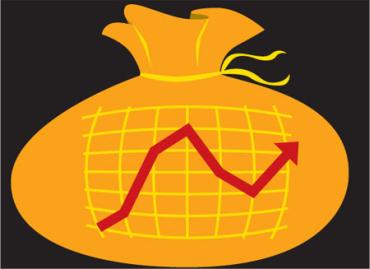 | « Back to article | Print this article |
Before you go for a second loan. . .
Ensure you are not over-leveraged; approaching a bank with which you already have a financial relationship may help.
Buying through loans, especially when it comes to houses and cars, is a common practice nowadays. And, sometimes, all these purchases happen within months or a few years of each other.
Bankers are often not comfortable when customers already have a sizeable amount of debt on their balance sheets and are looking for more.
But then, one may really need the loan for that car, or medical emergency, or some personal expenditure.
Click NEXT to read further. . .
Before you go for a second loan. . .
In this situation, before approaching banks, one may want to take stock of their current debt servicing ratio.
It may sound technical but in simple terms, it means the cash available with you to service debt.
And the higher your debt servicing ratio, the better are the chances of securing another loan.
Harsh Roongta, CEO, www.apnapaisa.com, says, "For the salaried with an EMI above 50 per cent of their salary, taking another loan is not a good idea, as the debt servicing ability could be hampered in the future."
Click NEXT to read further. . .
Before you go for a second loan. . .
He recommends secured options like loans against shares or gold.
A private sector banker said loan servicing, as a percentage of your monthly take-home pay, should not be 40 per cent.
The rest is earmarked for monthly expenses.
So, if your take-home salary is Rs 100,000 per month, monthly expenses Rs 35,000 and EMI Rs 25,000, then you have a surplus of Rs 40,000 every month.
This financial scenario is quite comfortable for any bank to lend you more.
Things can go haywire if your EMI is, say, Rs 60,000 for the same salary and you are seeking another loan.
Click NEXT to read further. . .
Before you go for a second loan. . .
Some large public sector banks provide car loans at 1.5 per cent lower than the current existing rate for existing home loan customers.
The rationale is since a housing loan is a significantly higher sum than the car loan, and both are collaterised with the same bank, the risk can be taken.
A senior manager with Union Bank says banks also find comfort in existing customers because of the easy availability of data regarding their loan servicing ability.
"Delinquency rates in personal and car loans are higher and hence, an existing customer, whose loan repayment has been seen and whose KYC is done, will find it easier to get such a loan" adds the senior manager.
Click NEXT to read further. . .
Before you go for a second loan. . .
If you approach a bank with no financial relationship in the past, things may not be so simple.
They may not be so comfortable providing a personal loan because of the lack of collateral, especially if you are overleveraged.
Even in the case of auto loans, the falling realisable value of the car makes many banks uncomfortable.
Yes, there are non-banking financial institutions that provide loans. But, the rates being charged are sometimes prohibitively high sometimes.
Click NEXT to read further. . .
Before you go for a second loan. . .
"From a bank's perspective, unless it is an easily saleable security, they may be hesitant in doling out loans. A car loan is just about possible, while a loan against gold/shares is also easy to secure," says Roongta.
Other options for raising cash such as loans against shares come under the capital market exposure of the bank.
Banks, by and large, tend to maintain a 50 per cent margin on loans against shares.






